100 Years of Insulin: Featured research
Netherlands-Canada Type 2 Diabetes Research Consortium Team Grant Recipients
-
The Right Timing to prevent Type 2 Diabetes: Restoring 24-hour substrate rhythmicity to improve glycemic control by timing of lifestyle factors
Canadian investigators

Dr. André Carpentier, Nominated Principal Applicant: Université de Sherbrooke 
Dr. Denis Blondin, Principal Applicant: Université de Sherbrooke 
Dr. David Campbell, Principal Applicant: University of Calgary 
Dr. Jean-Pierre Després, Principal Applicant: Université Laval 
Dr. Parminder Raina, Principal Applicant: McMaster University Dutch investigators

Dr. Patrick Schrauwen, Nominated Principal Applicant: Maastricht University 
Dr. Renée de Mutsert, Principal Applicant: Leiden University Medical Center 
Dr. Joris Hoeks, Principal Applicant: Maastricht University 
Dr. Femke Rutters, Principal Applicant: Amsterdam University Medical Center Summary
Recently, our 24-hour culture has been identified as a factor that can cause type 2 diabetes. Technological and societal advances such as electric lighting and digital screens, shift work, time zone transfers, and round-the-clock food availability disrupt our intrinsic and evolutionarily preserved 24-hour rhythms resulting in a desynchronization between light cues and behavior cues to our circadian system. This mistiming of cues is now thought to be a large contributor to the current metabolic health crisis. Preclinical data indicate that differentially timed interventions throughout the 24-hour cycle may have an impact on outcomes of these interventions.
The proposed Dutch-Canadian research consortium objectives are to elucidate the mechanisms and the impact of differentially timed life style throughout the 24-hour period on the development of type 2 diabetes to develop more effective interventions to prevent this disease. Building on our internationally acclaimed expertise in research on type 2 diabetes, state-of-the-art methodological capacities, large longitudinal cohorts in Europe and Canada, our expertise in patient engagement and lifestyle interventions, and on our large network of partners, we propose 3 complementary and integrated work packages that will optimize lifestyle interventions for the prevention of type 2 diabetes, build training and mentoring capacity of next generation of scientists, and develop a successful collaborative network engaging patients in research across Canada and the Netherlands. The proposed consortium will engage some of the world’s best experts in integrative physiology, epidemiology, lifestyle interventions, patient engagement, and scientific networking to optimize interventions based on circadian metabolic rhythmicity to prevent type 2 diabetes, train the future generation of health researchers in the field, and engage patient partners at the international level.
CIHR-JDRF – Accelerating Stem Cell-Based Therapies for Type 1 Diabetes Team Grant Recipients
-
Using novel transplantation strategies and HLA-edited hypoimmunogenic hPSCs to develop a superior islet-like product for T1D treatment

Dr. Maria Cristina Nostro (Senior Scientist, McEwen Stem Cell Institute at University Health Network) 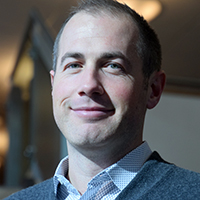
Dr. Andrew Pepper (Assistant Professor, University of Alberta) 
Dr. Dan Drucker (Senior Investigator, Lunenfeld-Tanenbaum Research Institute) 
Dr. Sara Nunes Vasconcelos (Scientist, University Health Network) 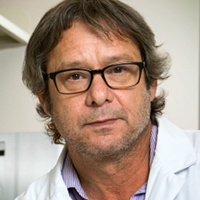
Dr. Gregory Korbutt (Professor, University of Alberta) Summary
Type 1 diabetes (T1D) is an autoimmune disease characterized by destruction of beta cells. Using islet transplantation, one can achieve restoration of glycemia in approximately 60% of T1D patients, indicating that cell replacement therapy is a viable option to treat this disease. However, donor scarcity, poor islet survival after transplant, the need to optimize the transplant site and the requirement for systemic immunosuppression limits this therapeutic application to only a few patients.
Our team will take advantage of our expertise in stem cell biology, vascular biology, islet transplantation and beta cell biology to focus on addressing all of these challenges to develop a safe and effective clinical-grade product for therapy. This will be achieved by 1) using human stem cells to generate an unlimited source of surrogate islets, 2) enhancing islet survival by implementing our novel transplantation approaches to optimize the transplant site, and 3) eliminating or reducing the need for immune-suppression by using a universal donor stem cell line that is designed to avoid rejection after transplantation.
The outcome from these studies will accelerate the clinical translation of universal donor stem cell derived islet cells for T1D therapy.
-
Generation of a functionally robust stem cell-based therapy for type 1 diabetes

Dr. Francis Lynn (Investigator, BC Children’s Hospital Research Institute 
Dr. Megan Levings (Investigator, BC Children’s Hospital Research Institute) 
Dr. Bruce Verchere (Investigator, BC Children’s Hospital Research Institute) 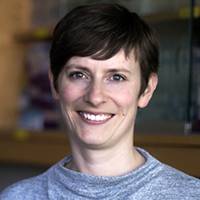
Dr. Jenny Bruin (Assistant Professor, Carleton University) 
Dr. Pat MacDonald (Professor, University of Alberta) 
Dr. Jim Johnson (Professor, University of British Columbia) 
Dr. Wyeth Wasserman (Vice-President of Research, BC Children’s Hospital) Summary
A cure for type 1 diabetes (T1D) may lie in the replacement of insulin-producing cells by transplantation. Hundreds of patients worldwide (including ~400 in Canada) have received transplants of islets—clusters of insulin-producing cells in the pancreas – enabling better blood glucose control without the need for insulin administration. Yet because there are not enough organ donors, new sources of insulin-producing cells are needed for the millions living with this disease. We can now generate insulin-producing cells from stem cells but these cells do not secrete insulin properly nor do they survive transplantation without immunosuppression. In response, our team aims to use our combined expertise in single cell technologies, genome editing, immunology, and stem cell and islet biology to produce a new and improved cell source for cell replacement therapy in T1D that can be tested in clinical trial in a few years. Such an advance could not only transform the lives of thousands of Canadians living with T1D, but also greatly reduce the tremendous economic and health burden that diabetes places on Canada today.
UK-Canada Diabetes Research Team Grants Recipients
-
Remission of diabetes and improved diastolic function by combining structured exercise with meal replacement and food reintroducTion (RESET)

Kaberi Dasgupta (Canadian NPI: Research Institute of the McGill University Health Centre) 
Thomas Yates (UK NPI: University of Leicester) Summary
RESET is a randomized controlled trial that adds a structured supervised exercise strategy to low energy, partial meal replacement diet to tackle diabetes remission in young people less than 40 years of age with type 2 diabetes mellitus (T2DM). Additionally, through the exercise component, it aims to offset lean mass loss, enhance fitness, and improve MRI based measures of diastolic function, which are early indicators of heart disease in T2DM. The ‘special ingredient’ is supervision and relapse management. The seminal DiRECT trial demonstrated that a low energy diet could remit T2DM, but to be sustained, active supervision needs to be reinstituted with weight regain. In RESET, this supervision will be reinstituted not only for dietary issues, but also for exercise. Participants in RESET will be randomized to either usual care or a 24-week low energy diet and a supervised exercise program. Following the 24-week period and outcome assessment, the control arm will be offered the low energy diet approach in appreciation of participation. The trial will be concurrently conducted in Montreal through the Research Institute of the McGill University Health Centre, the University of Alberta, and the Leicester Diabetes Centre. 80 participants will be recruited across these sites. By gathering outcomes and patient perspectives through this efficacy trial, we are working to improve the lives of people with T2DM, breaking barriers to the complications of this complex disease.
-
Precision medicine in diabetes: Pharmacogenetic studies of large randomised controlled trials of diabetes therapies

Marie-Pierre Dubé (Canadian NPI: Université de Montréal) 
Ewan Pearson (UK NPI: University of Dundee) Summary
Diabetes is a chronic disease that affects how the body uses glucose and can lead to serious health problems, including cardiovascular disease, neuropathy, nephropathy, and eye disease. Type 2 diabetes is the most common type of diabetes, accounting for approximately 90% of all cases. Treatment of type 2 diabetes typically proceeds with the drug metformin, followed by a range of new combination therapy options. The latest treatment guidelines offer choices based upon risks, cost, and benefit, however there is considerable heterogeneity in who benefits and who is harmed from any of these treatments which are increasingly used in the UK and Canada. This UK-Canada collaboration brings together, for the first time, genetic data on randomised controlled trials of the newer diabetes medication, including SGLT2i trials (Dapagliflozin and Empagliflozin), GLP-1RA trials (Albiglutide, Lixisenatide), and DPP-4 inhibitor trials (Saxagliptin) in over 30,000 genetic samples. These unique resources are only available to the principal applicants, and in combination, provide great power to identify genetic variants that alter benefit to these medications, side effects and cardiovascular outcomes. Here, we will conduct a series of genetic studies making use of dense genomic data already available. All subjects will be analyzed using leading-edge bioinformatics and statistical approaches. We aim to identify genetic variants that alter response and outcomes of those new diabetes drugs (SGLT2i, GLP-1RA, DPP-4i) with the goal to enable the personalization of therapy for diabetes, such that we can one day prescribe the best anti-diabetes therapy suited to each individual patient.
-
Systematic analysis of the molecular mechanisms of leukocyte entry into the pancreas

Sylvie Lesage (Canadian NPI: Centre de recherche de l'Hôpital Maisonneuve-Rosemont) 
Adrian Liston (UK NPI: Babraham Institute) Summary
Lymphocytes, also known as white blood cells, defend the body against microbes, viruses, and cancer by circulating throughout the body. Aside from lymphoid tissues (spleen, lymph nodes, bone marrow, etc.), a small number of lymphocytes can be found in all other tissues, including the pancreas. The entry of lymphocytes into tissues such as the brain, the eyes, the muscles, or the pancreas, is regulated by specific proteins and processes. Aberrant or facilitated entry of lymphocytes into these non-lymphoid tissues can lead to severe immune pathologies. Notably, lymphocyte infiltrates in the pancreas have been documented in both type 1 and type 2 diabetes. Blocking immune cell entry in the pancreas would certainly provide therapeutic benefit to diabetes patients. Our overall objective is to identify the proteins that allow both normal and aberrant lymphocyte infiltration in the pancreas. We will use two complementary non-targeted approaches to identify key pathways facilitating lymphocyte entry into pancreatic tissue. First, by a novel molecular biology approach, namely ProCode, we will test the role of over 200 proteins in inhibiting or facilitating lymphocyte entry in the pancreas. Second, we will screen over 200 strains of mice from the Collaborative Cross and determine which of these mice present with more or less lymphocytes in the pancreas. As the genome of the Collaborative Cross mice is known, this unbiased approach will reveal genes that influence lymphocyte entry in the pancreas. Altogether, these complementary approaches will unravel the specific molecular pathways that need to be targeted to prevent lymphocyte entry in pancreatic tissue.
-
Mobile Health Biometrics to Enhance Exercise and Physical Activity Adherence in T2D

Alison McManus (Canadian NPI: University of British Columbia) 
Matthew Cocks (UK NPI: Liverpool John Moores University) Summary
Being physically active is important for managing type 2 diabetes, but many people with type 2 diabetes find it hard to stick to an exercise program. Research is needed to find better ways to help people maintain a physically active life. The objective of this project is to examine how mobile technology can help men and women with type 2 diabetes exercise and maintain a physically active lifestyle. We will run an experiment with men and women with type 2 diabetes in Canada and the UK, where we ask them to use mobile devices that monitor how active they are, and the effect exercise has on their heart. Importantly, we will see whether this information about the body motivates people to stick to their exercise plan, and if it helps to manage their diabetes. Finding out whether we can use mobile technology to help maintain long-term increases in exercise in people with type 2 diabetes, and whether this leads to better management of diabetes, will help us to develop better ways of improving the health of those with type 2 diabetes.
-
A UK-Canada Collaboration on the genetics of long-term diabetes complications and their risk factors among people with type 1 diabetes

Andrew Paterson (Canadian NPI: SickKids Research Institute) 
Helen Colhoun (UK NPI: University of Edinburgh) Summary
Over 100,000 Canadians have type 1 diabetes. They require lifelong insulin injections to replace insulin synthesized by specialized cells in their pancreas that have died due to an immune process. There are few treatments to prevent or delay the underlying destruction of insulin producing cells. Studies have shown that many people with type 1 diabetes still produce small amounts of insulin. This is important because these people have less severe diabetes: they require lower doses of insulin; have better control of blood sugar levels; are at lower risk for low blood sugar; and are at lower risk for long-term complications of diabetes, including eye, kidney and heart diseases, which are all major health problems. However, we have little understanding of the factors that result in differences in insulin production capacity between people with type 1 diabetes. In this project, we will use data and samples from nine different studies, with a total of ~12,200 people with type 1 diabetes, to allow us to identify the genetic factors that influence residual insulin production. This would be the largest and most comprehensive study of this topic to date. Identifying the genetic factors is the first step to understanding the mechanisms that could be used to develop new approaches to help preserve insulin production in people with type 1 diabetes. Since insulin production is also abnormal in many people with type 2 diabetes, findings from this work could also benefit those with type 2 diabetes.
-
Bridging the gap to translation by understanding and preventing diabetic vascular complications using human organoid culture

Josef Penninger (Canadian NPI: University of British Columbia) 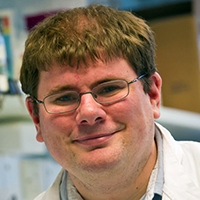
David Andrew Long (UK NPI: University College London) Summary
Diabetes affects nearly 3 million Canadians and 8.8% of the global population. In Canada, treating new cases of diabetes diagnosed between 2012-22 is estimated to cost $15.4 billion, while in the U.K., 10% of the NHS budget is spent on treating diabetes and associated complications, including kidney disease, blindness, heart attacks, stroke and amputation of lower limbs. These complications are often caused by changes in blood vessels; therefore, strategies that protect or repair blood vessels may be promising new treatments. Studies using mice and cultured cells have identified several molecules that protect blood vessels but moving these findings from laboratories to humans has been difficult. Dr. Josef Penninger’s group recently developed a novel method to create human blood vessels from stem cells in the laboratory. When exposed to diabetic conditions, these artificial blood vessels show the same changes and features seen in the blood vessels of diabetic patients. These artificial blood vessels will allow scientists to examine promising findings from mice and cells in a human-like environment before conducting clinical trials with human patients. Dr. Penninger will work with a team of U.K. based scientists, Drs. David Long, Luigi Gnudi, and Karen Price, to assess the potential of two previously identified molecules angiopoietin-2 and apelin to reverse changes caused by high blood sugar in artificial human blood vessels. Additionally, they will examine why some diabetic patients do not develop blood vessel-related complications. Their findings will ultimately lead to the discovery of new treatments for blood vessel complications in diabetes.
Team Grant: Diabetes Mechanisms and Translational Solutions
-
Sodium glucose co-transport-2 inhibition diabetes and kidney function loss in type 1 diabetes: The "SUGARNSALT" Team Grant Program

Dr. David Cherney, Nominated Principal Investigator: University Health Network 
Dr. David J.T. Campbell, Principal Investigator: University of Calgary 
Dr. Anita Layton, Principal Investigator: University of Waterloo 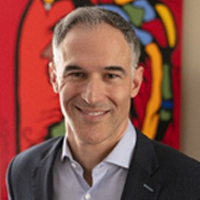
Dr. Bruce Perkins, Principal Investigator: University of Toronto Summary
Diabetes is the most common cause of kidney failure in Canada and requires either dialysis or a kidney transplant. Fortunately, new therapies called "SGLT2 inhibitors" have been discovered that reduce the risk of kidney failure and cardiovascular diseases in people with type 2 diabetes. These drugs may delay the need for dialysis by as much as 15 years, or prevent it entirely. Unfortunately, it is not known if these medicines are also beneficial for people with type 1 diabetes. In this research program, we will study kidney effects of SGLT2 inhibition in people with type 1 diabetes over a two-year treatment period, including blood and urine tests; seek to understand how these medications work over the long term; examine ways to avoid side effects; and check to see how patients feel about taking these medications, in terms of both benefits and side effects. Next, we will use Danish health records (where SGLT2 inhibitors can be used for type 1 diabetes) to determine if these therapies reduce the risk of kidney disease when used as part of routine care for type 1 diabetes. Finally, we will study the effectiveness of these medications as a long-term kidney protective therapy using mathematical models. Overall, this program has the potential to reduce the risk of diabetes complications and improve the quality of life in people living with this serious condition.
Further reading
-
Precision medicine study of type 2 diabetes in the COLCOT-T2D trial

Dr. Marie-Pierre Dubé, Nominated Principal Investigator: University of Montreal; Montreal Heart Institute 
Dr. Jean-Claude Tardif, Principal Investigator: University of Montreal 
Dr. André C. Carpentier, Principal Investigator: University of Sherbrooke 
Dr. Gary F. Lewis, Principal Investigator: University of Toronto Summary
Colchicine is an anti-inflammatory medication and is one of the oldest remedies still commonly in use today as a treatment for gout. Our team will soon launch a study to determine if colchicine will reduce major cardiovascular events in 10,000 patients with type 2 diabetes. We will collect DNA and blood samples and use the techniques of genomics (to measure DNA variation) and proteomics (variation in protein levels), and we will measure drug metabolites in circulation in the blood of patients. We will also use clinical information including the patients' medical history and complications of diabetes. The study will allow us to determine which patients may benefit more or less from colchicine. We will also study the role of sex and gender on diabetes and drug response and on study participation. Our Team Grant will provide valuable evidence toward better prevention strategies and treatment options for patients with diabetes.
Further reading
-
A deep phenotyping network for understanding human islet variation in health and diabetes

Dr. Patrick MacDonald, Nominated Principal Investigator: Canada Research Chair; University of Alberta 
Dr. James D. Johnson, Principal Investigator: University of British Columbia 
Dr. Jennifer Bruin, Principal Investigator: Carleton University 
Dr. Jianguo (Jeff) Xia, Principal Investigator: McGill University Summary
Insulin is the primary hormone responsible for controlling blood sugar levels. It is produced by the pancreatic islets of Langerhans, rises after a meal to promote energy storage, and falls during fasting to allow energy mobilization. The levels of insulin in the blood vary tremendously amongst people. Nutrition, age, sex, genetics, and environmental exposures are all important factors likely to impact insulin levels. However, the underlying mechanisms by which these factors affect islet insulin production at the cellular level are not clear. Our team seeks to understand the variability in human islet function in relation to genetic and environmental impacts on diabetes risk and to identify mechanisms of islet dysfunction in diabetes. To do this we will take advantage of extensive data on the molecular, cellular, and physiological function of islets from human organ donors. We will also produce tools and resources so that other researchers can explore this data to answer their own questions about islet dysfunction in diabetes.
Further reading
-
Preventing vision loss from diabetic retinopathy: Guiding primary care diabetic retinopathy screening in Canada through the use of provincial healthcare administrative data

Dr. Valeria Rac, Nominated Principal Investigator: University Health Network 
Ms. Debbie Sissmore, Principal Investigator: Diabetes Action Canada 
Dr. Michael Brent, Principal Investigator: University Health Network 
Dr. David Maberley, Principal Investigator: University of Ottawa 
Dr. Donna Manca, Principal Investigator: University of Alberta Summary
For individuals living with diabetes, one of the major complications of the disease is diabetic retinopathy (DR) which, if not treated, can lead to blindness. Depending on where a person lives in Canada, up to 60% of individuals with diabetes have not had their eyes examined within a one-year period. Knowing who has not had their eyes checked is not always possible for community-based doctors and nurses by looking at electronic health records but providing this information to doctors and nurses would help to improve DR screening rates across the country. This team grant proposes to support primary healthcare DR screening by using provincial administrative data in Ontario, Alberta, British Columbia and Newfoundland and Labrador to determine who needs to have their eyes examined according to clinical practice guidelines. The generated lists of individuals will be provided to a community care setting to arrange an eye appointment. Coordination and capacity of care within the participating provinces will also be examined. Various research methods will be used to evaluate the effectiveness, cost-effectiveness, implementation issues and barriers, and sex- and gender-related differences in the provision of care and keys to success. The broader goal of this public health initiative is to identify unmet care needs, and to begin the pathway towards the creation of a Canadian DR screening program, similar to that in the United Kingdom, and consequently eliminate DR as the leading cause of blindness in working-age individuals.
Further reading
-
Immunometabolism in diabetes: harnessing metabolic crosstalk between islets and immune cells for therapy

Dr. Bruce Verchere, Nominated Principal Investigator: University of British Columbia 
Dr. Ramon Klein Geltink, Principal Investigator: University of British Columbia; BC Children’s Hospital Research Institute 
Dr. Megan Levings, Principal Investigator: University of British Columbia; BC Children’s Hospital Research Institute 
Dr. Pere Santamaria, Principal Investigator: University of Calgary 
Dr. Sue Tsai, Principal Investigator: University of Alberta Summary
We have assembled a unique team of experts in immune cell and insulin-producing cell biology and diabetes, to study why the immune system becomes over-activated and kills insulin-producing beta cells and causes T1D. We will focus on a growing area of research known as immunometabolism, which is the study of how metabolic pathways inside cells affect their ability to divide and function. We will use samples from mice or people who are healthy or have T1D to study how cellular metabolic pathways might be altered in T1D. We will also investigate how factors made by the beta cells themselves might influence the metabolic activity of immune cells. This work will lead us to discover new ways to intervene to inhibit immune cell killing. We also plan to use new genetic engineering approaches to manipulate the ability of immune cells to respond to islet-derived factors and/or change the activity of specific metabolic pathways. The outcome of this work is that we will gain a better understanding of how altered metabolism influences autoimmunity and be able to design new ways to manipulate key metabolic processes to prevent or slow T1D progression.
Further reading
-
Building CAPACIty for pediatric diabetes research and quality improvement across Canada

Dr. Shazhan Amed, Nominated Principal Investigator: B.C Children's Hospital 
Dr. Meranda Nakhla, Principal Investigator: Montreal Children’s Hospital; McGill University 
Dr. Julia von Oettingen, Principal Investigator: Montreal Children’s Hospital; McGill University 
Dr. Ian Zenlea, Principal Investigator: Trillium Health Partners; University of Toronto Summary
Although there have been many advances in diabetes care since insulin was discovered 100 years ago, youth with diabetes continue to have a higher risk of other health problems, a lower quality of life, and a shorter life span than their peers without diabetes. This health gap is likely in part due to suboptimal access to and delivery of their diabetes care, which is worse in disadvantaged populations across Canada. Our project will develop strategies to address these gaps. The Canadian Pediatric diabetes Consortium (CAPACIty) is a network of 15 childhood diabetes centers from across Canada We are partnering with patients/families and health care professionals to jointly design and develop a Canada-wide childhood diabetes registry and research platform. The registry will enable us to improve diabetes care and health outcomes for Canadian youth through comparison of diabetes care quality and outcomes between Canadian diabetes centers, quality improvement initiatives, patient-informed research initiatives across Canada, and successful advocacy work. We anticipate that the CAPACIty registry will not only lead to better health outcomes but also serve as a powerful tool for governments and decision-makers to implement policy decisions that are driven by our data. Lastly, our patient advisory board will ensure better representation of youth with diabetes and their parents among provincial and national associations that advocate for people living with diabetes.
Further reading
-
The developmental origins of pediatric type 2 diabetes and early renal dysfunction

Dr. Brandy Wicklow, Nominated Principal Investigator: University of Manitoba; Children’s Hospital Research Institute of Manitoba 
Dr. Meaghan Jones, Principal Investigator: University of Manitoba; Children’s Hospital Research Institute of Manitoba 
Dr. Allison Dart, Principal Investigator: University of Manitoba; Children’s Hospital Research Institute of Manitoba 
Dr. Francis Lynn, Principal Investigator: University of British Columbia; BC Children’s Hospital Research Institute 
Dr. Christine Doucette, Principal Investigator: Max Rady College of Medicine; Children’s Hospital Research Institute of Manitoba Summary
Childhood-onset T2D is associated with high rates of early-onset, progressive kidney disease. With increasing numbers of children diagnosed with T2D, more infants are born having been exposed to maternal pre-gestational T2D diabetes in the womb (in utero). Consequently, we now know that T2D exposure in utero is a potent risk factor for the development of childhood-onset T2D; however, it is not yet known how T2D exposure increases offspring risk or if it increases the risk of associated renal complications. Recent scientific advances have revealed that the maternal in utero environment can alter the expression of genes in the offspring via a process called epigenetic regulation, which impact important metabolic pathways needed to maintain health. In addition, a specific change in the DNA sequence (HNF1a gene variant) appears to be associated with childhood onset T2D risk. In this study, we aim to define the mechanisms by which exposure to T2D in utero and the G319S variant impact how the beta cells of the pancreas and the nephrons in the kidney develop and function and to determine the role of epigenetic programming in transmitting risk from in utero T2D exposure to b cell and kidney dysfunction.
Upon completion of this study, we hope to better understand how maternal diabetes exposure and the HNF1a gene variant impact the health of the pancreatic beta cells and the kidneys in the infants, to identify markers at birth that identify which children are at highest risk of developing T2D, and to inform the development of new treatments to prevent T2D and renal complications in exposed children.
Further reading
-
Central role of muscle autophagy in metabolism and musculoskeletal health

Dr. Minna Woo, Nominated Principal Investigator: University Health Network 
Dr. Mohit Kapoor, Principal Investigator: University Health Network 
Dr. Matthew W. Grol, Principal Investigator: Western University 
Dr. Gilles Gouspillou, Principal Investigator: Université du Québec à Montréal 
Dr. Angela Cheung, Principal Investigator: University Health Network Summary
Diabetes (specifically type 2 diabetes (T2D)) and osteoarthritis (OA) often occur together, and both are associated with a condition called sarcopenia. Sarcopenia refers to the loss of muscle mass and strength that occurs with aging. We, therefore, posit that sarcopenia serves as a common link between T2D and OA. Autophagy is a 'self-eating' process that 'cleans out' damaged components of cells. When autophagy is defective in muscle, damaged cell components can accumulate, and this can lead to sarcopenia. The purpose of this team project is to determine how problems with muscle autophagy contribute to T2D and OA. To do this, we will study mouse models in which genes regulating autophagy have been altered in muscle and examine for OA in these mice. We will also assess if we can treat or reverse T2D and OA using gene therapy to restore autophagy in muscle. Finally, we will take samples of muscle, blood, as well as knee x-rays from patients with these conditions and analyze them to identify common genetic links between T2D and OA to identify new drug targets.
Further reading
-
Designing stem cell derived islets for diabetes therapy

Dr. Timothy Kieffer, Nominated Principal Applicant, University of British Columbia 
Dr. Nika Shakiba, Principal Investigator: University of British Columbia 
Dr. Elizabeth Rideout, Principal Investigator: University of British Columbia; CIHR Sex and Gender Science Chair 
Dr. Corinne Hoesli, Principal Investigator: McGill University Summary
People with type 1 diabetes lack the cells that release the hormone insulin, so multiple daily insulin injections remain the conventional way to control blood sugar levels and survive. Scientists at the University of Alberta made breakthrough improvements in transplanting clusters of insulin-producing cells, called 'islets.' The procedure is quick, and many transplant recipients can reduce or even eliminate insulin injections. Unfortunately, the only current source of islets for transplant is recently deceased donors and only a tiny fraction of those in need can receive the procedure. Over the past several years, there have been remarkable breakthroughs in unravelling the process by which islet cells develop naturally in the body. As a result, it is now possible to replicate many steps of this process in the laboratory with cultured stem cells, culminating in insulin-producing cells. Clinical trials are now underway in which islet precursor cells generated from cultured stem cells are loaded into thin devices and implanted under the skin. While initial assessments in patients are encouraging, insulin production from the cell-containing devices is currently inadequate to reverse diabetes. Our goal is to significantly improve upon the manufacturing of the islet cells to obtain more robust insulin delivery, with a focus on generating an optimized process to mass-produce stem cell-derived islet cells that will form the basis for new clinical trials in patients with type 1 diabetes.
Further reading
-
A first-in-human trial of autologous induced pluripotent stem cells (ipsc)-derived islets: Developing a personalized diabetes therapy

Dr. James Shapiro, Nominated Principal Investigator: University of Alberta 
Dr. Timothy Kieffer, Principal Investigator: University of British Columbia; ViaCyte Inc 
Dr. Gregory Korbutt, Principal Investigator: University of Alberta 
Dr. Patrick MacDonald, Principal Investigator: Canada Research Chair; University of Alberta 
Dr. Andrew Pepper, Principal Investigator: University of Alberta Summary
Diabetes is caused by the lack of insulin, a hormone produced by the islet B-cells in the pancreas that regulates blood sugar. In type 1 Diabetes (T1D, ~10%), the B-cells are destroyed by one's own immune system. In type 2 Diabetes (T2D, ~90%), the body becomes more resistant to insulin, increasing the demand and eventually leading to B-cell damage. Our team will develop a stem cell-based therapy to replace or supplement damaged B-cells in people with all types of diabetes. We propose to manufacture new B-like cells from patients’ own blood cells so that they will be accepted by the immune system and no/minimal anti-rejection drugs are needed. In this project, we will conduct a first-in-human trial to implant these cells under the patient's skin and evaluate their safety and preliminary efficacy. Manufacturing protocols will be optimized to allow the development and scale-up of clinical grade products for therapy. Being able to transplant an unlimited supply of self-derived islet cells without immunosuppressants is a novel approach to treat all forms of diabetes and could be the world's first functional cure.
Further reading
Diabetes Prevention and Treatment in Indigenous Communities: Resilience and Wellness Team Grant Recipients
-
Strong Bodies, Spirits, Minds, and Voices: Privileging Indigenous Knowledge to Guide Pediatric Type 2 Diabetes Prevention with First Nations and Métis Communities in Saskatchewan
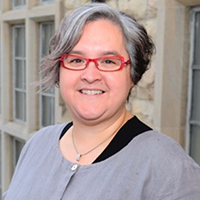
Dr. Sarah Oosman, Nominated Principal Investigator: University of Saskatchewan 
Dr. Jill Bally, Principal Investigator: University of Saskatchewan 
Dr. Amanda Froehlich-Chow, Principal Investigator: University of Saskatchewan 
Dr. Shelley Spurr, Principal Investigator: University of Saskatchewan Summary
Rates of type 2 diabetes (T2D) among young Indigenous populations are growing at an inequitably higher rate than among the non-Indigenous Canadian population, with some of the highest rates projected in Saskatchewan. A complex constellation of social, political, physical, and cultural factors contribute to inequitable rates of diabetes, requiring innovative Indigenous-led solutions. Strategies for promoting health and preventing pediatric prediabetes and T2D must be centred in Indigenous culture and worldviews and grounded in Indigenous models of resilience and wellness. Our team consists of Indigenous and non-Indigenous scholars and community leaders including Indigenous Knowledge Keepers, youth, and individuals affected by diabetes. We will create, implement, evaluate, and scale-up a mitos miyoyawin (tree of wellness) toolkit focused on preventing pediatric T2D grounded in First Nations and Métis models of resilience and wellness. The findings will help us understand the effectiveness of health promotion interventions with diverse First Nations and Métis communities, decolonizing implementation health research, and contributing to Indigenous-driven approaches to reversing the upward trajectory of pediatric T2D diabetes among diverse First Nations and Métis youth, families, and communities in Saskatchewan and beyond.
-
Social and Cultural Mechanisms of Resilience and Wellness with Diabetes: Relational Knowledge Generation, Gathering and Exchange

Dr. Lynden Crowshoe, Nominated Principal Investigator: University of Calgary 
Dr. Stephanie Montesanti, Principal Investigator: University of Alberta 
Dr. Rita Henderson, Principal Investigator: University of Calgary 
Dr. Pamela Roach, Principal Investigator: University of Calgary 
Dr. Michael Green, Principal Investigator: Queen’s University 
Dr. Lee A. Green, Principal Investigator: University of Alberta 
Dr. Dean Eurich, Principal Investigator: University of Alberta Summary
Diabetes is strongly influenced by social and cultural contexts. For Indigenous Peoples, ongoing dynamics of colonization perpetuate social inequities that influence diabetes through socio-economic resource disparities, social and societal adverse life experiences, and systemic health care violence. For the Indigenous person with diabetes, these complex factors add overwhelming burden, influencing the distress of diabetes and ultimately outcomes. Indigenous Peoples with diabetes, their care providers, and policy makers all make decisions on diabetes care. For this project, we seek to gain knowledge of mental models and decision-making strategies for wellness and resilience with diabetes. We will apply cognitive research methods to explore how experts in professional domains make critical decisions. The research method will be grounded in Indigenous cultural ways of knowing, being and doing to gain deep knowledge of protective and therapeutic approaches in diabetes prevention and management. Knowledge from this research will be used to redesign behavioural health approaches that will have potential to innovate models of diabetes clinical care, patient support, patient education and patient self-management.
-
Mobilizing resilience through Community-to-community (C2C) exchange: Seven Generations thinking for wellness and diabetes prevention

Dr. Lucie Lévesque, Nominated Principal Investigator; Queen’s University (Ontario). The team's co-Principal Applicants are Kanienkehaka Knowledge Users and Researchers: Dr. Alex M. McComber, Kahnawake; Dr. Treena Wasonti:io Delormier, Kahnawake, McGill University; and Dr. Brittany Wenniserí:iostha Jock, Akwesasne, McGill University; and allied researcher Dr. Dave Bergeron, from the Université du Québec à Rimouski. Summary
Building on an established partnership with six Indigenous communities in Manitoba, Ontario and Quebec, we are working to build on community mobilization training and existing community strengths to prevent type 2 diabetes. Using a community-engaged approach that is based in a Haudenosaunee Two Row Wampum perspective, and with consideration for a diversity of genders, we will study a community-to-community mentorship model to prevent type 2 diabetes (T2D). Knowledge sharing activities will include community exchanges, participatory video storytelling, social media, and gatherings. Our 5-year research seeks to understand how community resilience can best be used to promote the success of our model, the effects of these activities on community mobilization for T2D, and how the model works to promote community mobilization for T2D. Community members will be involved in all of the research phases and have contributed to designing this project. Our research will be the first to examine how community resilience can be used for T2D prevention in Indigenous communities. Findings will help identify sustainable approaches to prevent T2D that can be rippled to other communities across Canada to promote the wellness of Indigenous peoples.
-
Diabetes Connections - Shookaawaapinewin Mamow Wicihiwewin: Reorienting diabetes care in First Nations communities in Northwestern Ontario through empowerment, autonomy and ownership for health and wellbeing

Dr. Sumeet Sodhi, Nominated Principal Investigator; University Health Network (Ontario) 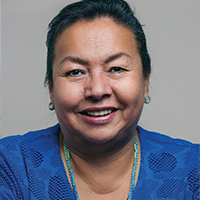
Janet Gordon, Chief Operating Officer for the Sioux Lookout First Nations Health Authority 
Ralph Johnson, Program Director for WeQuenGwaywin and The Natural Healing Program in Sioux Lookout Summary
Diabetes is known to affect a high proportion of Indigenous Peoples living in Canada, with high morbidity rates. This is due to a complex history of intersectional determinants of health including intergenerational trauma from colonization. Addressing structural root causes has been a call for action by First Nations Peoples in Canada for many years, and addressing wellness and resilience is an important aspect of a holistic health systems response. Our team will evaluate the effectiveness of models of care for diabetes services at the community-level. We aim to describe associations among the different models of care for community-level diabetes services and community-centred diabetes outcomes in our setting, across multiple dimensions that support community wellness and resilience, including patient and caregiver experience, health of the population, health system sustainability, health care provider experience, cultural centredness, community engagement, systems thinking, and integrated knowledge translation. Our primary research question is: Does a particular model of care for delivering diabetes prevention and treatment services lead to improved diabetes and related outcomes in First Nations communities in Northwestern Ontario? And our secondary research question is: Does the addition of a community health worker program lead to improved diabetes and related outcomes in this population, compared to just enhancing the standard of care at community-level?
Diabetes, Psychosocial Health, Prevention and Self-Management Operating Grant Recipients
CIHR-JDRF Funding Pool in Type 1 Diabetes
-
Aiming for Something Sweeter: Supporting Youth with Type 1 Diabetes During Transition from Pediatric to Adult Diabetes Care

Dr. Sonia Butalia, Nominated Principal Investigator: University of Calgary Summary
The transition period from pediatric to adult care is a vulnerable and challenging period for teenagers with type 1 diabetes. Many teenagers struggle with a new and unfamiliar adult health care system on top of the stressful changes that come with growing up, such as increased responsibilities for their diabetes, independence, and graduating from high school. In Canada, many teenagers drop out of care during the transition from pediatric to adult care. This loss of follow-up results in an increase in diabetes complications. To address this gap and improve continuity of care, in 2013 we began speaking with teenagers and young adults with type 1 diabetes, their families, as well as pediatric and adult doctors and nurses, to gain a better understanding of how to better serve teenagers' needs. We used this information to develop a program for transition in which a transition coordinator connected with teenagers through texting, emails, or by phone, and encouraged the use of a diabetes-specific transition website and a private Facebook page. Clinic attendance quadrupled and blood glucose improved in teenagers with suboptimal glucose control. We now aim to spread and scale this transition program to five major sites in Alberta. We will study if the transition program is successful in these sites, how to best support the uptake of the program in new communities, and the cost savings of the program. We will also develop a free, online guide, so other communities across Canada may carry out a program like this.
-
Adaptation and Pilot Evaluation of a Digital Intervention Targeting the Psychosocial Needs of Individuals with Pregestational Diabetes: A Mixed-Methods Multi Phase Study

Dr. Deborah Da Costa, Nominated Principal Investigator: Research Institute of the McGill University Health Centre 
Dr. Jessica Kichler, Principal Investigator: University of Windsor Summary
Depression and anxiety in people with diabetes is two to four times greater than in the general population and negatively impacts blood glucose levels, self-management and quality of life. The pregnancy planning and perinatal period (pregnancy and postpartum) is a critical life stage with unique psychosocial challenges for people with pregestational diabetes (PGD). There are no tailored interventions to promote mental health during the transition to parenthood for pregnant people with PGD. Digital interventions are a far-reaching and effective method of preventing and treating psychological problems in the perinatal period in people without diabetes. We have previously developed and evaluated a bilingual, web-based platform called HealthyMoms for pregnant and postpartum individuals that provides accurate and easily accessible information on depression, anxiety and stress during the perinatal period and evidence-based strategies to address these factors. We will now adapt and evaluate an enhanced version that is tailored to the needs of people with PGD to promote diabetes-specific psychosocial and mental health outcomes during the pregnancy planning and perinatal periods. The project will fill an important gap in current health care and web-based resources to prevent maternal psychological difficulties during this life transition for individuals with PGD.
-
Type 1 Diabetes, Exercise and Mentoring (TEAM) Trial: A randomized controlled pilot trial using peer mentorship to increase physical activity and quality of life in adolescents with type 1 diabetes
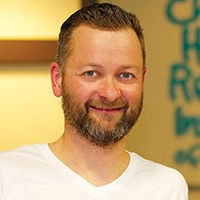
Dr. Jonathan McGavock, Nominated Principal Investigator: University of Manitoba 
Dr. Dana Greenberg, Principal Investigator: Diabetes Action Canada 
Dr. Jessica Kichler, Principal Investigator: University of Windsor 
Dr. Jennifer Yamamoto, Principal Investigator: University of Manitoba 
Dr. Jane Yardley, Principal Investigator: University of Alberta 
Dr. Ian Zenlea, Principal Investigator: University of Toronto Summary
Adolescents living with type 1 diabetes (T1D) face daily challenges related to blood glucose management during a critical stage in their development. These challenges can negatively impact their quality of life and mental health. The diabetes-specific distress and anxiety that accompany these challenges can be overcome by increasing daily physical activity levels. This study aims to use peer mentors to support adolescents living with T1D to increase their physical activity (PA) and improve their mental health. We will recruit 60 adolescents between the ages 13 and 17 years with T1D in Winnipeg and Mississauga, then randomly assign them to either the peer mentor intervention, or a control group who receive standard health recommendations for twelve weeks. The intervention will consist of three group or individual sessions weekly led by a young adult living with T1D who has adopted and sustained an active lifestyle. We will measure changes in daily activity levels and quality of life and will also conduct a qualitative study with adolescents who receive the intervention about factors that influenced their participation. The information gained will inform a larger definitive trial and could inform clinical practice guidelines with experimental evidence.
-
Find Your CommuniT1D: Customized Virtual Peer Support for People Living with Type 1 Diabetes

Dr. Holly Witteman, Nominated Principal Investigator: Université Laval 
Dr. Virtue Bajurny, Principal Investigator: Diabetes Action Canada 
Dr. Maman-Joyce Dogba, Principal Investigator: Université Laval 
Dr. Dana Greenberg, Principal Investigator: Diabetes Action Canada 
Dr. Matthew Menear, Principal Investigator: Université Laval 
Dr. Adhiyat Najam, Principal Investigator: Diabetes Action Canada 
Dr. Ruth Ndjaboue, Principal Investigator: Université de Sherbrooke Summary
When you live with type 1 diabetes (T1D), it is easy to feel alone. Managing your own T1D or your child's takes constant effort that is invisible to most people. Often, the only people who really understand what you are going through are other people in similar situations, but it can be hard to find those people, especially when there are other aspects of your life that might be different from others with T1D. For example, you might have a very young child with T1D, you might be racialized and deal with racism in health care on top of T1D, you might be going through menopause with T1D, you might be aging out of provincial or parental device coverage, you might speak a different language from most people around you with T1D, or any one of many other things that make your situation unique. This project aims to create regular, small online meetings to bring together people across Canada who are managing T1D who have other things in common. We will create small groups that will meet monthly as well as larger monthly webinars covering topics of interest. We will track how people like the groups, how they feel, what they like and don't like, and adjust the program accordingly. This project is led by researchers and others who themselves live with T1D. We believe that this kind of peer support can be extremely helpful to people with T1D and it will provide needed mental health support.
Indigenous Youth and Young Adults T2D Prevention and Self-Management
-
Healthy Fit and Strong - Changing the Story for Indigenous Youth and Young Adults

Dr. Doug Klein, Nominated Principal Investigator: University of Alberta 
Dr. Sean Lessard, Principal Investigator: University of Alberta Summary
The CHANGE Health Community Program is a program to help families re-learn healthy living by providing lifestyle intervention programming in four main areas: physical activity, nutrition, mental health, and social connections. Working in collaboration with urban Indigenous families, this innovative health care program responds to the need for health care to take a community-relevant, preventative, and holistic approach to health and wellness. The program uses a preventative, proactive, community-based model of care that focuses on lifelong wellness, which is in direct contrast to our current disease management models of care. Supported by Alberta Blue Cross, our previous study has shown that this program can be implemented with positive results. We have the opportunity to work with Indigenous families to adapt and implement this evidence-based family program to youth and young adults at Alexis Nakota Sioux First Nation. Our aim is to develop an Indigenous-centered, community-informed, and family-relevant approach to lifestyle interventions that leverages community assets, family resiliency. This program authentically responds to the Truth and Reconciliation Calls to Action while increasing the participation and authenticity of our relationships with Indigenous people.
-
Peer-Peer Support Initiative for Indigenous Youth and Young Adults with Diabetes
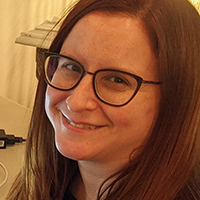
Dr. Romina Pace, Nominated Principal Investigator: Research Institute of the McGill University Health Centre Summary
Rates of diabetes are increasing among youth and young adults. This rise is particularly steep among Indigenous Peoples who also face high rates of depression and emotional distress due to the ongoing legacy of colonization resulting in systemic racism and intergenerational trauma. Diabetes care includes many aspects of self-care such as checking sugar, taking medication, and following exercise and diet advice, which is negatively impacted by emotional distress. The emotional distress specific to living with diabetes, known as diabetes distress, is due to feeling overwhelmed by the demands of self-care, fears of complications, and guilt or shame over lifestyle choices. Diabetes distress is known to be related to decreased well-being and poor diabetes control. Diabetes distress has not been studied among Indigenous youth, nor have interventions aimed at reducing it to improve diabetes management. Peer support has been shown to help empower youth and young adults by normalizing their experiences and providing a safe space to express themselves. In the Eeyou Istchee Cree community in Quebec, Jonathan Linton, an Indigenous young adult with diabetes, developed a program for youth with diabetes on management and self-care that incorporates traditional elements. As he helps participants be more active and eat healthier, he supports them in their journey with diabetes and creates a safe space for them to voice their concerns, easing their distress. This research proposal will build on the initiative developed by Mr. Linton to create a community of peer-mentors to provide Indigenous youth and young adults with the support needed to improve their distress and improve their diabetes control.
Prevention and Self-Management for Youth and Young Adults in Racialized, Low Socio-Economic Status, and Ethnocultural Communities Disproportionately Affected by T2D
-
Preventing diabetes in young pregnant Arab Muslim individuals through lifestyle modification using the Nutrition and Exercise Lifestyle Intervention Program (NELIP): A Call to Action

Dr. Michelle F. Mottola, Nominated Principal Investigator: University of Western Ontario Summary
Diabetes diagnosed during pregnancy, called gestational diabetes, affects 20% of Canadians, with Arab individuals of Middle Eastern descent at higher risk. Gestational diabetes can contribute to the continuing cycle of type 2 diabetes (T2D) across two generations: parent and baby. New approaches starting early in pregnancy to prevent T2D among pregnant Arab people of Middle Eastern descent and their babies are urgently needed. We will ask members of this community what matters most to them regarding nutrition and physical activity, and how these behaviours are influenced by religion and ethnic traditions and practices in order to co-design and modify our existing intervention program to deliver it in a more culturally-sensitive, participant-centred holistic way. We aim to determine the best strategy by which gestational diabetes and T2D risk can be reduced in young Arab individuals of Middle Eastern descent through positive behaviours that support a healthy lifestyle. This process of co-design can then be applied to assist other high-risk ethnic groups in developing lifestyle change to help reduce gestational diabetes and T2D risk in the parent and future child.
-
Preventing gestational diabetes mellitus among women living in India

Dr. Ravi Retnakaran, Nominated Principal Investigator, Sinai Health System Summary
Gestational diabetes mellitus (GDM), high blood sugar that is first recognized during pregnancy, affects up to one in six pregnant women worldwide and carries risks for both mother and child. It arises in women who have chronic abnormalities in the production and action of insulin. These abnormalities are actually present before the pregnancy and could be improved by healthy lifestyle intervention. We have established a funded trial in India in which 6000 non-pregnant young women who are planning to conceive within two years are being randomized to receive either a preconception lifestyle intervention delivered by community health workers, similar intervention initiated in the first trimester, or standard care. While the objective of this funded trial is to reduce the risk of obesity in the child resulting from the pregnancy, embedding the current study within this trial can address the critical clinical question of whether lifestyle intervention before pregnancy can reduce the incidence of GDM.
CIHR-JDRF Type 1 Diabetes and Precision Medicine Team Grant Recipients
-
Precise Treatment for Pediatric Diabetes: Providing the right care, for the right patient, at the right time, over time

Dr. Shazhan Amed, Nominated Principal Investigator: University of British Columbia 
Dr. Mark Clements, Principal Investigator: Children’s Mercy Kansas City 
Dr. Tricia Tang, Principal Investigator: University of British Columbia 
Dr. Wyeth Wasserman, Principal Investigator: BC Children’s Hospital Research Institute Summary
Diabetes is one of the most common life-long diseases affecting children. Many children living with diabetes use glucose sensors that measure sugar levels every one to five minutes and insulin pumps that deliver insulin via a small catheter under the skin. Information coming from these technologies help kids and families and their health care providers treat their diabetes, but this information is usually located in different online places. The lack of one trusted place to see all this important information prevents patients and their parents from using data to manage their diabetes and makes it harder for health care providers to provide the right care to the right patient at the right time, especially as kids' bodies and minds change as they grow and mature. TrustSphere is a new digital tool where patients, families, and their healthcare providers can see important diabetes information, like blood sugars and insulin doses streaming from glucose sensors and insulin pumps, or recommendations from the diabetes team, in one place. We will expand TrustSphere's capability by collecting more data from patients such as their healthy living behaviours, diabetes self-management behaviours, quality of life and mental health, and combine these data with glucose sensor and pump data to better understand differences between groups of patients. Our goal is to create a collaborative care experience, improve diabetes self-management, and ultimately improve patient experience and outcomes.
-
Empowering diverse Youth with diabetes through precision medicine, 'EVERYONE'

Dr. Farid Mahmud, Nominated Principal Investigator: Hospital for Sick Children 
Dr. Diane Wherrett, Principal Investigator: Hospital for Sick Children 
Dr. Andrew Paterson, Principal Investigator: Hospital for Sick Children 
Dr. Samantha Anthony, Principal Investigator: Hospital for Sick Children Summary
Type 1 diabetes is a complex and challenging health condition. Individual differences, including genetics, metabolism, environment, mental health, and social factors, play a role in how well diabetes is managed. Our research shows disparities between people with diabetes, where those of lower household income or ethnic minority groups have a much lower rate of meeting recommended glucose targets when compared with the larger clinic. Elevated glucose levels negatively impact mental health and increase the risk of future diabetes-related complications. If we want to improve care and eliminate disparities, we need to better understand how specific genetic, psychological, environmental, and social factors drive disparities in diabetes outcomes. We will collect information about how factors including genetics, biology, race, sex, gender, income, family structure, and mental health influence diabetes management, and use this to design personalized treatment strategies. The goal of this study is to create new knowledge on how differences in genes, environment, and social factors contribute to differences in type 1 diabetes management and develop ways to improve outcomes for all youth with type 1 diabetes.
Leveraging biological sex and genetics for beta cell-directed precision medicine in type 1 diabetes

Dr. Elizabeth Rideout, Nominated Principal Investigator; University of British Columbia 
Dr. San S. Luciani, Principal Investigator; BC Children’s Hospital Research Institute 
Dr. Peter Thompson, Principal Investigator; University of Manitoba 
Dr. Bruce Verchere, Principal Investigator; BC Children’s Hospital Research Institute 
Dr. James Johnson, Principal Investigator; UBC Diabetes Research Group Summary
Type 1 diabetes (T1D) affects more than 300,000 Canadians. An underappreciated factor that raises the risk of T1D is sex and gender. Men between the ages of 15 and 34 have an 80% higher risk of developing T1D. While lifestyle factors contribute to this increased risk in men, studies in animal models show biological sex also plays a key role. We do not fully understand why males are at a higher risk of T1D because most research does not include both sexes. In T1D, the immune system destroys beta cells, which make insulin. Recent studies point to beta cell problems and changes to the insulin gene as contributing factors to T1D. Because beta cells make huge amounts of insulin, which causes stress, even small changes in the cell's ability to make insulin tip beta cells into an unhealthy state and lead to immune system attack. Our team has evidence that male and female beta cells differ in their ability to make insulin, and to stay healthy despite the stress of insulin production. Our goal is to test whether sex differences in beta cells affect T1D risk. We will interfere with specific steps of insulin production and quality control in human beta cells and mice to see whether beta cell health is affected in either males or females. This information will help scientists to match males and females with appropriate T1D therapies.
-
Spatio-temporal dynamics of immune and non-immune islet injury in Type 1 Diabetes

Dr. Peter Thompson, Nominated Principal Investigator; University of Manitoba 
Dr. Herbert Gaisano, Principal Investigator; University of Toronto 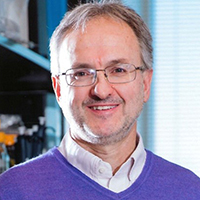
Dr. Pere Santamaria, Principal Investigator; University of Calgary 
Dr. Guy Rutter, Principal Investigator; Centre hospitalier de l'Université de Montréal Summary
Type 1 diabetes (T1D) varies significantly from person to person in terms of time to onset, rate of progression and insulin use, but the reasons underlying these differences are not known. These knowledge gaps hamper the development of treatments that are tailored to individual patients. Our findings show that there are hierarchies in the function of individual insulin-secreting beta cells and between each 'islet of Langerhans', the small clusters of cells in the pancreas where beta cells live. Specialized "leader" and "hub" beta cells of each islet are like the conductors in an orchestra, coordinating the function of the rest of the cells in the islet. We propose that these critical cells, or the islets in which they are enriched, are particularly vulnerable to destruction by invading immune cells in T1D. This has clinical implications for understanding the variability between T1D patients and improving diagnosis, care and treatment. Our project uses a variety of state-of-the-art technologies, T1D mouse models and human T1D pancreas tissue to address this question. This research will help us understand why there is variability in beta cell loss between people with T1D and will pave the way to new therapies that are tailored to individual patients.
CIHR-JDRF Type 1 Diabetes Screening Research Consortium Team Grant Recipient
-
Canadian Population Screening for Risk of Type 1 Diabetes Research Consortium (CanScreen T1D)

Dr. Diane Wherrett, Nominated Principal Investigator; University of Toronto 
Dr. Ashish Marwaha, Principal Investigator; University of Calgary 
Dr. Holly Witteman, Principal Investigator; the Research Centre of the CHU de Québec-Université Laval 
Dr. Peter Senior, Principal Investigator; University of Alberta 
Dr. Robin Hayeems, Principal Investigator; University of Toronto 
Dr. Pranesh Chakraborty, Principal Investigator; University of Ottawa 
Dr. Albert Tsui, Principal Investigator; University of Alberta 
Dr. Bruce Verchere, Principal Investigator; University of British Columbia 
Dr. Despoina Manousaki, Principal Investigator; University of Montreal 
Dr. Audrey L'Espérance, Principal Investigator; École Nationale d’administration publique 
Conrad Pow, Principal Investigator; Diabetes Action Canada 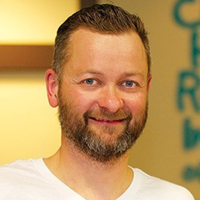
Dr. Jon McGavock, Principal Investigator; University of Manitoba 
Dr. Monika Kastner, Principal Investigator; University of Toronto 
Sasha Delorme, Principal Knowledge User; Indigenous Patient Circle, Diabetes Action Canada Summary
The Canadian Population Screening for Risk of Type 1 Diabetes Research Consortium (CanScreen T1D) is a diverse collaboration of children and adult diabetes doctors, geneticists and counsellors, newborn screeners, researchers, Indigenous circles, local and international advisory groups, policy makers and people with lived T1D experience, from across Canada to assess the feasibility and acceptability of a national pediatric Type 1 Diabetes (T1D) screening program. The key objectives of CanScreen T1D include evaluating the public's acceptability of population based T1D screening, determining the most practical screening and confirmatory antibody tests, and validating a trans-ethnic genetic risk score (GRS) in Canada’s multicultural landscape. The consortium is dedicated to co-creating a pilot T1D general population screening program that includes age-specific testing and decision-support tools, developed in partnership with people who have lived experiences of T1D. CanScreen T1D also aims to develop an educational approach for genetic counseling following positive GRS and antibody results as well as to develop national infrastructure to support follow-up studies, joint multi-centre intervention studies, and the eventual delivery of targeted treatments for the early stages of T1D.
CIHR Sex and Gender Science Chair – Diabetes
-
Real-world evidence on the association between diabetes and sex on cardiovascular event rates (The REDISCOVER Study)

Dr. Padma Kaul, Nominated Principal Investigator; University of Alberta 
Dr. Sonia Butalia, Principal Investigator; University of Calgary 
Dr. Roseanne Yeung, Principal Investigator; University of Alberta 
Dr. Peter A Senior, Principal Investigator; University of Alberta 
Dr. Dean Eurich, Principal Investigator; University of Alberta 
Dr. Darren Lau, Principal Investigator; University of Alberta Hospital / Kaye Edmonton Clinic Summary
Heart disease is the second leading cause of death among people living in Canada. While females experience better cardiovascular disease (CVD) outcomes than males, it has been suggested that the presence of diabetes negates this “female advantage”. However, the evidence supporting this statement is equivocal and highlights the need for additional observational studies in this area.
The REDISCOVER Study is designed to provide new insights into the relationship between sex and diabetes on CVD outcomes. The study uses the integrated system of health care delivery in Alberta, with one payer and one provider, which has made the linking of clinical, laboratory, and administrative data at the population level possible. Multiple studies are planned as part of REDISCOVER including examining sex differences in the rates of screening for diabetes; examining sex-differences in the prognostic information offered by HbA1c levels for the risk of CVD; and assessing sex differences in the uptake of and adherence to medications used to treat diabetes. The REDISCOVER is funded as part of the CIHR Sex and Gender Science Chair (Dr. Kaul) program.
*These grants were funded as aligned investments with the 100 Years of Insulin initiative
Healthy Cities Implementation Science Team Grants – Type 2 Diabetes Prevention
-
Small Steps for Big Changes: Implementing an evidence-based diabetes prevention program into diverse urban communities

Dr. Mary Jung, Nominated Principal Investigator; University of British Columbia 
Dr. Holly Witteman, Principal Investigator; University Laval 
Dr. Kathleen Martin Ginis, Principal Investigator; University of British Columbia 
Dr. Linda Li, Principal Investigator; University of British Columbia 
Dr. Corliss Bean, Principal Investigator; Brock University Summary
Small Steps for Big Changes is a diet and exercise counselling intervention that significantly reduces the risk of developing type 2 diabetes (T2D). Designed for feasible, scalable, and sustainable implementation into communities, Small Steps for Big Changes is delivered by community-dwelling peers to ensure the content is ethnoculturally relevant. This intervention can now be delivered virtually through a state-of-the-art online platform. The next phase of research is to test the implementation of this program in areas where T2D rates are high and diabetes prevention programs remain inaccessible. In partnership with YMCAs across eight Canadian provinces and the state of Queensland in Australia, we are well-positioned to evaluate the implementation and effectiveness of Small Steps for Big Changes across 16 urban municipalities. This research will offer an innovative, cost-saving, and sustainable solution for the prevention of T2D in traditionally underserved, at-risk populations.
*These grants were funded as aligned investments with the 100 Years of Insulin initiative
Knowledge Mobilization in Diabetes Prevention and Treatment Operating Grants Recipients
-
Integrating an online training platform into type 1 diabetes clinical care to empower self-management (Support implementation)

Dr. Anne-Sophie Brazeau, Nominated Principal Investigator; McGill University 
Dr. Rémi Rabasa-Lhoret, Principal Investigator; Université de Montréal Summary
Our team has developed Support, an online self-management education and peer support platform for individuals living with type 1 diabetes. Diabetes self-management is crucial for managing daily blood sugar levels and preventing complications. Individuals living with type 1 have requested easier access to diabetes training. Having demonstrated its safety and efficacy, we now aim to integrate Support into care services. In collaboration with partners, we've launched a study implementing Support in four clinics using diverse strategies, including provider training, local champions, and monthly newsletters. This proposed project supplements the ongoing study by examining the implementation process, identifying obstacles, and proposing solutions to facilitate future integrations in additional clinics.
-
Working Towards Novel Policy Solutions to Address Diabetes Among People Experiencing Homelessness

Dr. David Campbell, Nominated Principal Investigator; University of Calgary 
Dr. Jason Goertzen, Principal Investigator; Calgary Homeless Foundation Summary
Managing diabetes while homeless is extremely difficult, as individuals often struggle to follow healthcare recommendations due to the challenges of both conditions, along with the mental health toll and stigma they face. This population experiences more complications and earlier death compared to those who are housed. The objective of this project is to raise awareness of these challenges among frontline workers in the homeless-serving sector and amongst decision-makers who revise policies that better address the needs of this group. The project will use three knowledge mobilization activities: (1) Screening the short film Low, which portrays the real-life struggles of individuals living with diabetes and homelessness, for shelter staff across Alberta; (2) Co-creating a study guide to help viewers reflect on their practices and knowledge; and (3) Hosting a provincial summit on diabetes and homelessness in conjunction with the 7-Cities Conference on Housing and Homelessness in 2025. The goal is to influence policies and improve the lives of people living with both diabetes and homelessness in Alberta.
-
Advisory groUp of adult patients and caRegivers Of childRen and youth with type 1 diAbetes mellitus (AURORA) Study

Dr. Padma Kaul, Nominated Principal Investigator; University of Alberta 
Dr. Sonia Butalia, Principal Investigator; University of Calgary 
Dr. Roseanne Yeung Laiwah, Principal Investigator; University of Alberta 
Dr. Peter Senior, Principal Investigator; University of Alberta 
Dr. Darren Lau, Principal Investigator; University of Alberta 
Dr. Dean Eurich, Principal Invesitgator; University of Alberta Summary
Type 1 diabetes mellitus (T1DM) is a lifelong condition affecting about 300,000 Canadians, and both patients and caregivers often struggle to find reliable treatment and care information. Currently, Alberta lacks a clear Care pathway for T1DM patients, leaving both adults with T1DM and caregivers of pediatric patients uncertain about their treatment options. The Reshape-T1D Study has highlighted the need for a centralized information hub. Building on this, the Advisory groUp of adult patients and caRegivers Of childRen and youth with type 1 diAbetes mellitus (AURORA) Study aims to create an advisory group of adult T1DM patients and caregivers of pediatric patients to co-develop a knowledge mobilization hub that will house a comprehensive care pathway. The group will identify key areas of care, review data from the ULTIMA study, and provide feedback on barriers to care. This initiative will bridge a major gap in T1DM care information in Alberta, lay the foundation for similar efforts across Canada, and ultimately improve the health of T1DM patients and their caregivers.
-
Remission Possible: Harnessing Innovative Social Media Strategies to Make Remission of Type 2 Diabetes Possible Across Canada

Dr. Jonathan Little, Nominated Principal Investigator; University of British Columbia 
Dr. Femke Hoekstra, Principal Investigator; University of British Columbia Summary
Type 2 diabetes (T2D) remission, which means that blood sugar levels return to sub-diabetes levels without taking any glucose-lowering medications, is achievable for many people living with T2D through changes to diet and exercise behaviour. Despite this potential, many Canadians living with T2D and their healthcare providers remain unaware that remission is possible. Our mission is to raise awareness and provide support for people living with T2D to help make Remission Possible across Canada. The "Remission Possible" team includes researchers, doctors, people living with T2D, and social media experts to help share the inspiring stories of persons with lived experience of T2D remission through Facebook and YouTube advertisements. Once people view one of our social media advertisements, they are directed to our website, DiabetesRemission.ca where they find credible evidence-based information on T2D remission and can sign up for doctor-led programs that are designed to support them in a remission journey. By using social media to share the stories of people just like them, we will raise awareness and empower individuals living with T2D to help make Remission Possible in Canada.
-
Optimizing a care pathway for the postpartum health management of people who have developed gestational diabetes

Dr. Julie Robitaille, Nominated Principal Investigator; Université Laval 
Dr. Sophie Desroches, Principal Investigator; Université Laval Summary
People whose pregnancies are complicated by diabetes are at high risk of developing diabetes and heart disease later in life. Knowing that high-quality food, breastfeeding and regular physical activity after pregnancy can delay or even prevent the onset of diabetes later in life, it is even more important for these people to have good lifestyle habits. However, it can be difficult for people with young children to find the time to eat well and be active after childbirth, and breastfeeding can be difficult. It appears that support from a healthcare professional and follow up adapted to their situation could help them. The use of new technologies, such as virtual meetings, could be useful for people with new family responsibilities who wish to be accompanied by a healthcare professional. Currently, in the region, no follow-up is offered from the outset to people who have given birth within the last three months. The project therefore proposes, first, to optimize a care pathway based on a theoretical model with help from the various people potentially involved in this pathway, namely, healthcare professionals and the patients who would benefit from this care. An evaluation of this care pathway will also be planned. To this end, focus groups will be held to identify the parameters for successfully implementing the care pathway for people with a history of gestational diabetes. In the long term, the results obtained will make it possible to provide follow-up care to people at high risk of developing diabetes and heart disease later in life, and to support them in adopting healthy lifestyle habits. These results could also serve as a model for other healthcare organizations in Quebec.
-
Demystifying Diabetes Remission: A Knowledge Mobilization Opportunity

Dr. Diana Sherifali, Nominated Principal Investigator; McMaster University 
Dr. Monika Kastner, Principal Investigator; North York General Hospital; University of Toronto; Diabetes Action Canada Summary
Type 2 diabetes (T2D) is a chronic condition that requires individuals to manage their nutrition, exercise, and medications, which can be burdensome. While there is evidence that T2D can be partially or fully reversed, achieving remission in real-world settings is not well understood and often involves stigma. This project aims to raise awareness about T2D remission, promote the exchange of current evidence on remission strategies, and improve access to tailored, evidence-based resources for individuals, healthcare providers, and their communities. The initiative will use various methods, including infographics, newsletters, policy briefs, and interactive materials like podcasts and webinars, featuring the experiences of people with T2D. These resources will support the implementation of evidence into practice and policy. The project will also evaluate and sustain its efforts to ensure ongoing, person-centered conversations about T2D remission.
-
Legal Framework and Impact Analyses: Groundwork for a Diabetes Prevention and Remission Program in Quebec

Dr. Kaberi Dasgupta, Nominated Principal Investigator; McGill University 
Kim Hanson, Principal Investigator; HealthPartners Summary
Big studies in many countries have proven that type 2 diabetes can be prevented in people with prediabetes. The approach involves counseling to help people be more active, eat in a healthier way, and losing around 5% of their weight if they have extra weight (diabetes prevention). Recent studies show that in some people with early diabetes (less than 6 years, not on insulin), diabetes can be reversed through weight loss of around 10% with a low calorie diet with meal replacement products (called diabetes remission). Canadians do not have publicly funded diabetes prevention and remission programs. England has a model that could be adapted to work in Canada. Our team of experts, including diabetes prevention and remissions researchers, healthcare providers, persons living with type 2 diabetes now in remission, and legal and economic analysts, plans to analyze Quebec laws to identify people with prediabetes or early diabetes and offer them a program. They’ll also estimate the potential impact of such programs and the costs involved. The goal is to present this data to Quebec decision-makers and advocate for funding, with the hope of guiding other provinces as well.
-
Connecting Diabetic Retinopathy Screening Programs in Ontario. Mobilizing Knowledge across the Health System

Dr. Valeria Rac, Nominated Principal Investigator; University Health Network 
Dr. Monika Kastner, Principal Investigator; University of Toronto; North York General Hospital; Diabetes Action Canada 
Dr. David Maberley, Principal Investigator; University of Ottawa Summary
Diabetic retinopathy is an eye complication that can lead to vision loss or blindness if not detected early, but regular eye checks can prevent this. Unfortunately, many people with diabetes do not get their eyes checked annually, as recommended by Canadian guidelines. To address this, a systematic provincial screening program for diabetic retinopathy is needed. The program would remind patients and healthcare teams about annual eye exams, track past screenings using health records, and ensure accessibility for all, including those in rural or marginalized communities. This project aims to gather input from patients, healthcare providers, and organizations, assess the healthcare system’s capacity, and identify potential challenges. The findings will be shared in workshops with stakeholders, and a summary will be presented to the government to help create a provincial screening program by utilizing existing resources and suggesting improvements in care organization, funding, and capacity.
-
Freedom and Flexibility - Communicating the Experiences of Beta Cell Replacement to Patients and Providers

Dr. Peter Senior, Nominated Principal Investigator; University of Alberta; Alberta Health Services 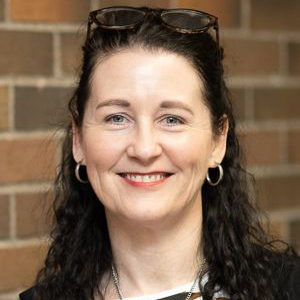
Dr. Renee Crossman, Principal Investigator; Memorial University 
Dr. Anna Lam, Principal Investigator; University of Alberta; Alberta Health Services Summary
Managing Type 1 Diabetes (T1D) with insulin therapy is challenging, but islet cell transplantation has been a promising alternative. Over the past 25 years, Canada has pioneered islet cell transplants, allowing more than 300 individuals to maintain normal blood glucose levels for an average of 3 years without insulin. While the transplants continue to function in half of recipients after 20 years, only 10% remain completely insulin-independent. Recipients report improved quality of life, including freedom from hypoglycemia and smoother blood glucose control. However, awareness of islet transplants as a treatment option is low, and there are misconceptions about the risks, transplant longevity, and wait times. Many donated pancreases are discarded due to a lack of matching recipients. The proposed project aims to interview islet transplant recipients and their families to better understand their experiences and develop video testimonials highlighting the challenges of living with T1D and the benefits of islet transplants. These videos will be shared with diabetes communities, healthcare providers, and policymakers to foster better understanding and promote novel treatments beyond insulin.
-
Supporting High School Students with Type 1 Diabetes: Mobilizing Experiential Knowledge to Combat Diabetes-Related Stigma

Dr. Ian Zenlea, Nominated Principal Investigator; Trillium Health Partners 
Dr. Dianne Fierheller, Principal Investigator; Trillium Health Partners 
Dr. Jessica Kichler, Principal Investigator; University of Windsor 
Elizabeth Moreau, Principal Investigator; Canadian Paediatric Society Summary
Adolescents with Type 1 Diabetes (T1D) often face diabetes-related stigma (DRS) at school, including bullying and isolation, due to a lack of understanding from peers and teachers. This project, co-created by adolescents with T1D, aims to raise awareness, combat myths, and educate others about the challenges of living with T1D in high schools. Using participatory research methods, the project will engage adolescents with T1D, healthcare providers, educators, and advocacy groups to co-design multimedia awareness products. The project will consist of four phases: engaging key stakeholders, conducting a scoping review to identify content needs, co-designing digital storytelling materials, and developing a knowledge mobilization plan to spread these products. The goal is to reduce DRS in high schools by promoting understanding and supporting students with T1D.
-
Mobilizing opportunities to strengthen gestational diabetes prevention and management in the ISR, NWT using a public health approach

Dr. Kelly Skinner, Nominated Principal Investigator; University of Waterloo 
Celina Wolki Ruben, Principal Investigator; Inuvialuit Regional Corporation 
Dr. Sonja Ostertag, Principal Investigator; University of Waterloo 
Dr. Tiff-Annie Kenny, Principal Investigator; University of Montreal 
Dr. Sonia Wesche, Principal Investigator; University of Ottawa Summary
Discrimination and racism from colonialism continue to affect the health of Indigenous Peoples in Canada, with factors like isolation from healthcare and high rates of food insecurity contributing to conditions like diabetes. In remote Arctic communities, such as the Inuvialuit Settlement Region (ISR) in Northwest Territories, diabetes and gestational diabetes mellitus (GDM) rates are higher than in other regions. GDM, in particular, places both mothers and babies at higher risk of developing diabetes. Community partners in the ISR have requested research to build diabetes support systems. This project aims to foster collaboration among community members, healthcare providers, policymakers, and administrators to improve GDM prevention and care in the ISR. It will map the care pathway for those with GDM by gathering information from individuals with lived experience, healthcare providers, and existing resources. The project will identify actions to improve access to GDM care, develop culturally relevant resources, and promote knowledge sharing to enhance diabetes care coordination in the ISR.
-
Yukon Experiences in Management of Type One Diabetes: Patient and Provider Perspectives

Dr. Liris Smith, Nominated Principal Investigator; Yukon University 
Dr. Marnie Paradis, Principal Investigator; Yukon Type 1 Diabetes Support Network Summary
Every day, 480 Canadians are diagnosed with Type 1 Diabetes (T1DM), which can develop at any age and, without proper management, can lead to serious complications and high healthcare costs. In Yukon, although 265 diabetes cases were reported in 2021/2022, there are no accurate data on T1DM specifically, creating a knowledge gap. Despite being the first jurisdiction in Canada to fund Continuous Glucose Monitors for children and Flash Glucose Monitors for adults, many Yukoners lack access to primary healthcare, and many T1DM diagnoses occur in hospital emergency departments. This project aims to describe the experiences of people with T1DM, their caregivers, and primary care providers, based on existing guidelines and clinical standards. It will provide recommendations to decision-makers in Yukon to improve access to care, management support, and resources for T1DM, with the goal of improving healthcare efficiency and quality of life for residents.
- Date modified: